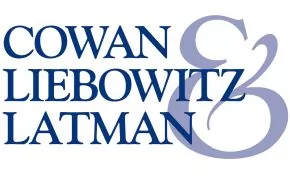What can you do to protect your goodwill if you unknowingly select an unfortunate brand name, or through no fault of your own, your brand name threatens to be tainted by an extraneous circumstance—like the coronavirus outbreak in 2020?
The Coronavirus
Corona Beer is known and enjoyed worldwide. “Corona Beer” reportedly was named in 1925 for the crown on a church in Puerto Vallarta, Mexico. “Corona” in Latin means halo or crown.
“Coronavirus” refers to a family of viruses having spikes resembling little crowns, including the SARS and MERS viruses. The Coronavirus epidemic that originated in Wuhan China has no connection with Corona Mexican lager beer.
Yet, Google searches have been trending for such terms as “Corona beer virus” and “beer virus.” Further, jokesters have been creating memes and videos linking the beer to the virus. For example, a video went viral (pun intended) showing Jen Davies wearing long sleeves, a mask, and gloves pouring the contents of Corona beer bottles down the sink, as her boyfriend Brad Holmes strenuously objects, because she is “trying to get rid of this virus in this house.”
Unfortunate Selections
On occasion, a company has unknowingly adopted a mark with an unfortunate connotation in another language or dialect. Here are just a few examples:
- A British food manufacturer launched its BUNDH curry sauce before learning that BUNDH meant buttocks in the Punjab community.
- Ford launched its PINTO automobile before learning that in Brazil PINTO meant a small-sized male genital.
- India’s largest car company announced its ZICA car, an abbreviation of “zippy car,” but renamed it TIAGO, the Portuguese name for James, because of its possible false association with the Zica virus.
- The Chevrolet NOVA could be translated as “no go” in Spanish, which reportedly hurt sales in Spain although not in Latin America.
Unfortunate Circumstances
On other occasions, companies have been linked to an unfortunate event unrelated to it. For example:
- “Isis Pharmaceuticals” changed its name to “Ionis Pharmaceuticals” in 2015 because of the advent of ISIS terrorism.
- A design agency and events company in Edinburgh named “Tsunami” chose to change its name following the 2004 Indian Ocean disaster.
- TYLENOL was taken off the market until its packaging had been redesigned after capsules laced with potassium cyanide killed seven people in the Chicago area in 1982.
- An appetite suppressant named AYDS in the 1970’s reportedly suffered a large drop in sales when the aids crisis hit in the 1980’s.
Strategies
What can you do to protect your business and goodwill when such a disaster befalls your brand name? That may depend on the strength of your trademark’s public recognition, the number of people who erroneously connect your brand name to the disaster, and the seriousness of the negative effect on your sales or reputation.
Here are a few of the strategies you might consider:
- Wait it out without doing anything until it blows over
- Make changes in your product or packaging to counter the problem
- Start an advertising and publicity campaign to inform consumers of the facts
- Send take down-notices to internet service providers running misleading videos or websites
- Send complaints to misinformed media outlets asking for corrections
- Submit to major newspapers editorials explaining the facts
- Change your brand name if all else fails and serious damage looms
In any event, you should promptly determine the appropriate action before things spin irretrievably out of control.
The content of this article is intended to provide a general guide to the subject matter. Specialist advice should be sought about your specific circumstances.


